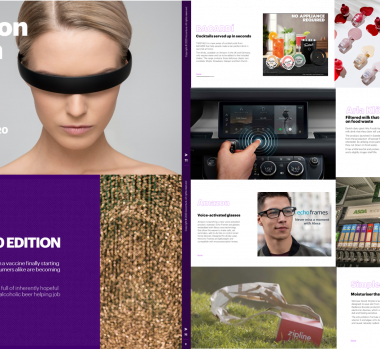Innovation’s Sharp Edge
I’m walking home from work and Camberwell New Road echoes to the sound of an air ambulance and a fleet of police cars. It’s the soundtrack to another stabbing. Despite its leafy roads and collection of cafes and restaurants, the Borough of Lambeth in South London is an epicentre of violent crime, the scene for six stabbings in the last three months.
Whilst the spiralling extent of knife crime in London is well documented, solutions to the problem are stuck in a rut. Councils double down on existing methods like stop-and-search (which has proven divisive and discriminatory) or knife amnesties and expect different results. It’s a senseless circle – tragic events strung together by inertia and media headlines – and there’s dire need for a new, innovative approach.
In 2005, Police Scotland were similarly stuck. Glasgow was the murder capital of Western Europe and existing police strategies consistently failed to break the cycle of violence. They decided it was time to radically change, piloting and launching the Violence Reduction Unit; a pioneering, public health approach that treats violence like an infectious disease.
Since then, the murder rate in Scotland has halved. The VRU’s innovative methodology has driven this life saving impact, and offers lessons for solving other complex issues:
Find a fresh approach.
Some fine innovations are powered by astutely borrowing from other industries. The VRU’s approach was inspired by Professor Gary Slutkin, who has drawn parallels between the spread of violence and an infection process like Flu or Tuberculosis for the last 20 years. Through this medical lens the problem became a scientific enterprise, as opposed to moral or legal one, stimulating much-needed fresh perspectives.
Whilst analysing homicide statistics in Chicago, Slutkin realised that (like infectious disease) the greatest predictor of violence is interaction with a previous case of violence, either as a victim or perpetrator. Following this logic, the VRU’s strategy was to intervene and support both the culprits and casualties of violence. Like suppressing an outbreak of Cholera, by isolating those at risk you interrupt transmission to the next wave of victims and prevent future spread.
Unearth the real problem.
Inspired by the world of medicine, Police Scotland were able to reframe their approach and ask themselves a different question to the painstaking previous decades. Like their current Metropolitan counterparts, they’d been responding to the symptoms of violence through punishment and rehabilitation. But their new public health approach changed things; why treat the symptoms of Malaria from a hospital bed when you can use a mosquito net?
By reframing the question from ‘how can we punish violence?’ to ‘how can we prevent violence?’, the VRU could intervene and support young people beforethey turned weapons – inoculating them from violent crime rather than stitching them up in intensive care.
Change the game to change behaviour.
As many organisations know, shifting behaviours accumulated over decades is tough. Incremental changes like advanced weapon scanning systemsare currently having little impact in London – breaking behaviour needs a more radical approach.
In Glasgow, they started by listening. Through gathering information from victims, offenders, social services, education, mental health teams and community groups, the VRU was able to piece together an accurate picture of those at risk and the triggers for violence. They employed ex-offenders to work as their experts on the ground, training them to intervene when tensions simmered.
It was a bottom-up, systemic and inclusive approach echoing public health programmes like ending the AIDs epidemic.As Christine Goodall, founder of Medics Against Violence, says;
“You can arrest as many people as you like. You can search as many people as you like. You can throw away the key if you want to. It just won’t solve the problem.”
The success of this method in Scotland adds further weight to the theory that we can treat violence like an epidemic. And with the Mayor of London pledging his support to a public health approach this week, there’s real potential to start experimenting with an approach which could break the wheel of inertia, sirens and loss in Lambeth and beyond.
Get in touch



